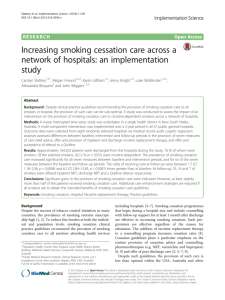Key Messages for surgical services
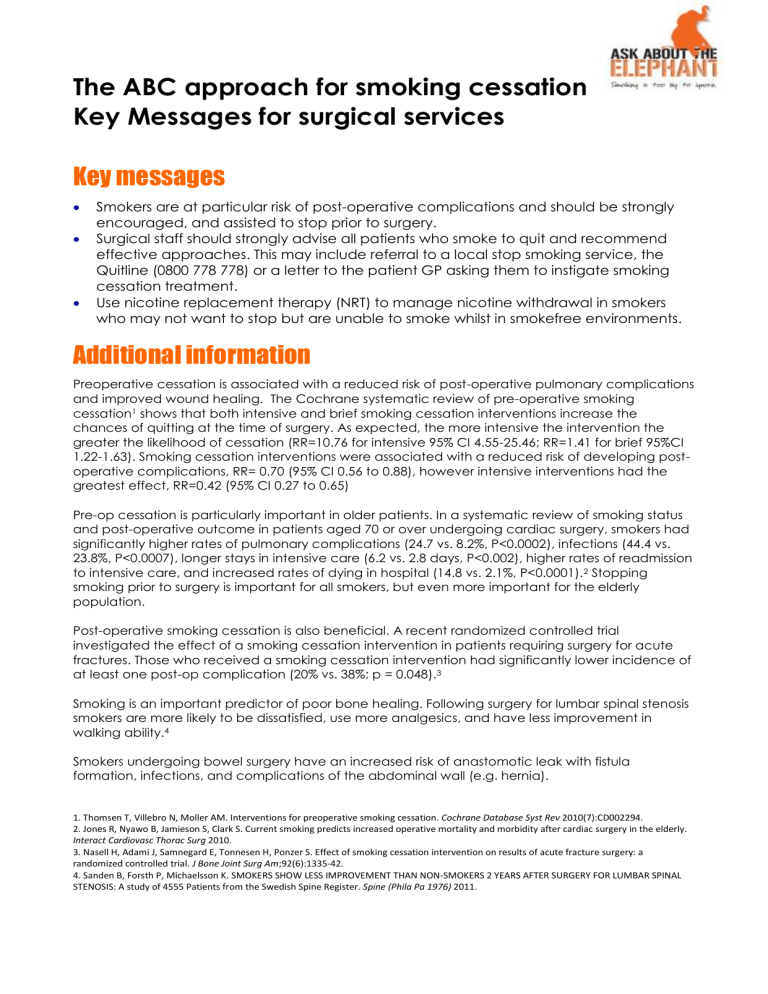
The ABC approach for smoking cessation
Key Messages for surgical services
Key messages
Smokers are at particular risk of post-operative complications and should be strongly encouraged, and assisted to stop prior to surgery.
Surgical staff should strongly advise all patients who smoke to quit and recommend effective approaches. This may include referral to a local stop smoking service, the
Quitline (0800 778 778) or a letter to the patient GP asking them to instigate smoking cessation treatment.
Use nicotine replacement therapy (NRT) to manage nicotine withdrawal in smokers who may not want to stop but are unable to smoke whilst in smokefree environments.
Additional information
Preoperative cessation is associated with a reduced risk of post-operative pulmonary complications and improved wound healing. The Cochrane systematic review of pre-operative smoking cessation 1 shows that both intensive and brief smoking cessation interventions increase the chances of quitting at the time of surgery. As expected, the more intensive the intervention the greater the likelihood of cessation (RR=10.76 for intensive 95% CI 4.55-25.46; RR=1.41 for brief 95%CI
1.22-1.63). Smoking cessation interventions were associated with a reduced risk of developing postoperative complications, RR= 0.70 (95% CI 0.56 to 0.88), however intensive interventions had the greatest effect, RR=0.42 (95% CI 0.27 to 0.65)
Pre-op cessation is particularly important in older patients. In a systematic review of smoking status and post-operative outcome in patients aged 70 or over undergoing cardiac surgery, smokers had significantly higher rates of pulmonary complications (24.7 vs. 8.2%, P<0.0002), infections (44.4 vs.
23.8%, P<0.0007), longer stays in intensive care (6.2 vs. 2.8 days, P<0.002), higher rates of readmission to intensive care, and increased rates of dying in hospital (14.8 vs. 2.1%, P<0.0001).
2 Stopping smoking prior to surgery is important for all smokers, but even more important for the elderly population.
Post-operative smoking cessation is also beneficial. A recent randomized controlled trial investigated the effect of a smoking cessation intervention in patients requiring surgery for acute fractures. Those who received a smoking cessation intervention had significantly lower incidence of at least one post-op complication (20% vs. 38%; p = 0.048).
3
Smoking is an important predictor of poor bone healing. Following surgery for lumbar spinal stenosis smokers are more likely to be dissatisfied, use more analgesics, and have less improvement in walking ability.
4
Smokers undergoing bowel surgery have an increased risk of anastomotic leak with fistula formation, infections, and complications of the abdominal wall (e.g. hernia).
1. Thomsen T, Villebro N, Moller AM. Interventions for preoperative smoking cessation. Cochrane Database Syst Rev 2010(7):CD002294.
2. Jones R, Nyawo B, Jamieson S, Clark S. Current smoking predicts increased operative mortality and morbidity after cardiac surgery in the elderly.
Interact Cardiovasc Thorac Surg 2010.
3. Nasell H, Adami J, Samnegard E, Tonnesen H, Ponzer S. Effect of smoking cessation intervention on results of acute fracture surgery: a randomized controlled trial. J Bone Joint Surg Am;92(6):1335-42.
4. Sanden B, Forsth P, Michaelsson K. SMOKERS SHOW LESS IMPROVEMENT THAN NON-SMOKERS 2 YEARS AFTER SURGERY FOR LUMBAR SPINAL
STENOSIS: A study of 4555 Patients from the Swedish Spine Register. Spine (Phila Pa 1976) 2011.
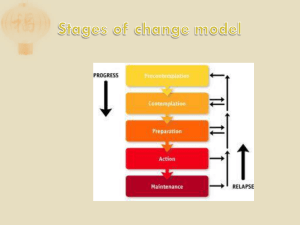

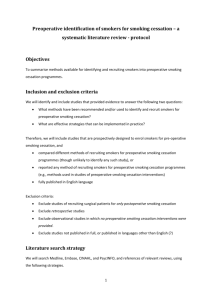

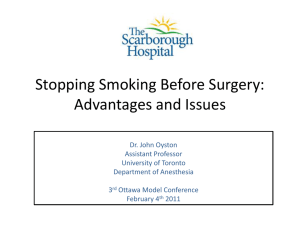

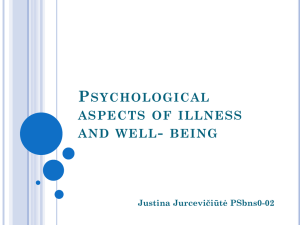

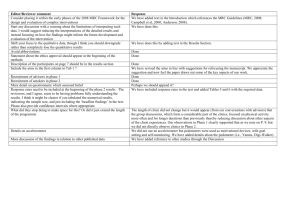
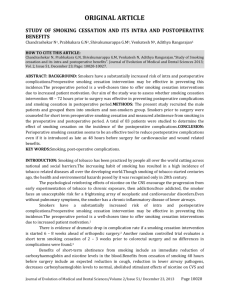
![[Section 2.0] PICO Question Table – LC III Guidelines](http://s3.studylib.net/store/data/006838942_1-d31e4d679d8742f590f21898872c27c9-300x300.png)
